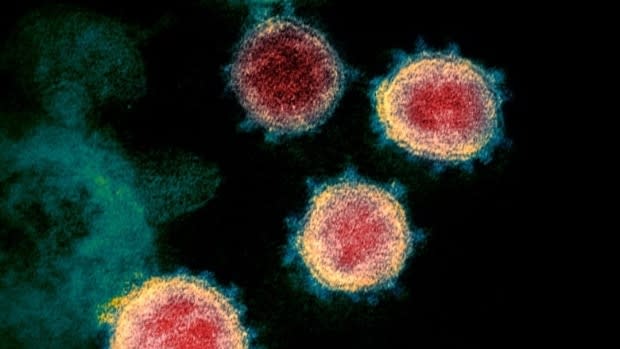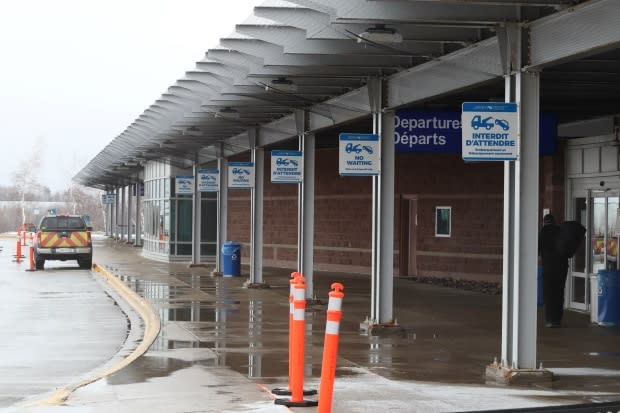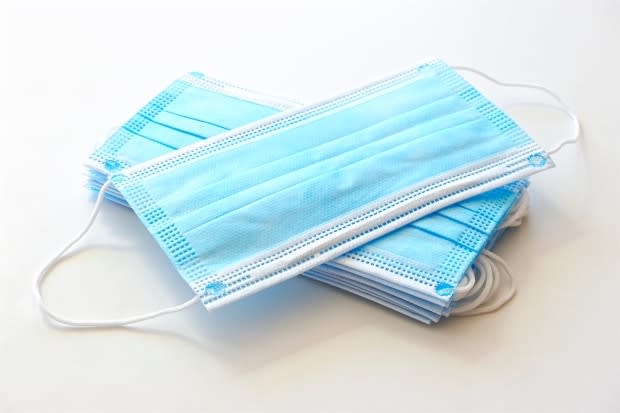4 temporary foreign workers in N.B. test positive for COVID-19

New Brunswick has four new cases of COVID-19, all temporary foreign workers from Mexico, Premier Blaine Higgs said Wednesday.
They arrived in Moncton and immediately began self-isolating for the required 14 days, prior to starting their jobs in Miramichi.
On Day 10, they were tested for COVID-19 and the tests came back positive.
"Although it's concerning, you know, I expressed those concerns early on … which brought us to really ensure that we had a process in place for temporary foreign workers, and that system's working," Higgs told reporters during a media briefing.
"The system caught these workers before they went out [into the general public or to another region], the contract tracing is being done, it's been able to contain [the coronavirus] to this group and we feel confident that that's as far as it will go."
Up until Wednesday, no new cases of the respiratory disease had been reported in New Brunswick for 15 days and the province logged two days with no active cases.
The workers, who are all in their 30s, must continue to self-isolate until they're cleared by Public Health.
Because they were destined for the Miramichi region, Public Health records them as being cases in that region, health Zone 7.
Temporary foreign workers were banned from New Brunswick April 28 as part of the province's efforts to slow the spread of the coronavirus. The move sparked a firestorm of criticism from farmers and fish-plant operators who rely on the workers.
On May 29, after a failed attempt to find enough New Brunswick residents to fill the numerous positions, Higgs lifted the ban, saying he believed it was safe to do so, as long as the temporary foreign workers respect safety measures, including a 14-day quarantine.
Diagnosis during the period of self-isolation is the goal, said Dr. Jennifer Russell, the province's chief medical officer of health.
That way, the risk of transmission is "the lowest it can possibly be, limiting the number of cases," she said.
Asked what she thinks when she sees large gatherings of people not abiding by Public Health guidelines to maintain a physical distance of at least six feet, or to wear a face covering when distancing isn't possible, Russell said it's "understandable."
"The fact that we had such stringent measures imposed early on that were quite restrictive and obviously affected people's mental health, affected our society, affected the economy — I think when you take all that into account, it is understandable how people would become fatigued … and perhaps … more complacent and less vigilant," she said, particularly given the low number of cases in the province right now.

COVID-19 may not be at the front of people's minds during the summer months when the government isn't holding as many news conferences either, said Russell.
So reminding them of the types of things they need to continue to do until a vaccine becomes available is "a challenge."
"I think we can always do more around that messaging, but not just from the government's perspective and from a Public Health perspective, but also from individual and community and business perspective," said Russell.
"So I think there's a collective need for us to collaborate and co-operate as a province, as individuals and organizations and businesses so it's not left on one area's shoulders to bear this. This is a collective approach to staying in yellow [stage of COVID-19 recovery] as long as we possibly can."
Russell pointed to the recent lockdown in Melbourne, Australia, which is actually more restrictive than the one during the first wave of COVID-19.
"So if our goal is to have the most open socio-economic kind of environment that can exist in conjunction with COVID, then we really all have ownership of that," she said.
Airline passenger travelled for work
An out-of-province individual who tested positive for COVID-19 last Wednesday, two days after flying from Moncton to Montreal on Air Canada flight 8903, was in New Brunswick for work, according to Department of Health spokesperson Bruce Macfarlane.
"It is our understanding the individual's work-related plans were approved and protective measures were put in place," he said in an emailed statement.
The individual was asymptomatic and wore a mask during the entire flight, the government had said in a tweet late last Friday.

The individual arrived from Montreal on July 26 and spent one day in Moncton.
"A risk assessment has been conducted by regional Public Health and it has been determined the risk to the public is extremely low," the tweet said.
Air Canada did not respond to a request for the number of passengers who were on each flight.
This case of COVID-19 is not counted as a case in New Brunswick.
No other information has been released.
The province has recorded 174 cases of COVID-19 since the pandemic began in March. Two people have died and 168 have recovered.
On Tuesday, 298 tests were done for COVID-19. As of Wednesday, a total of 53,699 tests have been conducted since the pandemic started, according to the government's COVID-19 Dashboard.
Free masks
The City of Saint John is providing free disposable masks to anyone who needs one "in order to support the advice of the chief medical officer related to mask use indoors," it announced in a news release on Wednesday.
Masks will be available at various city and community locations, effective immediately. But they won't be available on Saint John Transit buses.
"We are unable to provide masks on buses at this time. The daily number of buses and routes would deplete our supply," the statement said.

Anyone who uses the bus and would like a disposable mask, is asked to visit one of the locations where masks are being offered.
These include the city's municipal operations building at 175 Rothesay Ave., the City Hall cashier's office at 15 Market Square, and the parks and recreation department at 171 Adelaide St.
Other locations include:
North
The Crescent Valley Resource Centre at 130 MacLaren Blvd.
The ONE Change Inc. (Nick Nicolle Centre), at 85 Durham St.
South central Peninsula
Romero House at 647-649 Brunswick Dr.
The Saint John Newcomers Centre, at 165 Union St. 4th Floor.
The Seniors' Resource Centre, at 39 King St., Brunswick Square, Level 3.
P.U.L.S.E. Inc., at 251 Wentworth St.
West
The Carleton Community Centre, at 120 Market Place.
What to do if you have a symptom
People concerned they might have COVID-19 symptoms can take a self-assessment test on the government website at gnb.ca.
Public Health says symptoms shown by people with COVID-19 have included: a fever above 38 C, a new cough or worsening chronic cough, sore throat, runny nose, headache, new onset of fatigue, new onset of muscle pain, diarrhea, loss of sense of taste or smell, and difficulty breathing. In children, symptoms have also included purple markings on the fingers and toes.
People with one of those symptoms are asked to:
Stay at home.
Call Tele-Care 811 or their doctor.
Describe symptoms and travel history.
Follow instructions.


